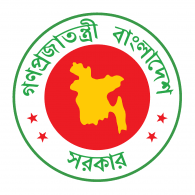Last Updated: 2019-05-05 23:57:40
Currently each CC has one CG and three CSGs. Their engagement varies. Some limitations exist in the formation of these committees (may not have females as should be, may not have representatives from other segments of society etc.), in the operation (may not meet as frequently as should be, may not have adequate quorum for the meeting, all may not participate in the meeting, decisions may not be taken, minutes may not be prepared, decisions may not be followed up etc.) and in broad engagement with the community for bringing improved health outcomes of the population. CG and CSGs will be revitalized by orienting them thoroughly about their roles and responsibilities not only for proper functioning of the CC but also creating a health movement within their respective community by promoting healthy lifestyles, making the environment for conducive for health and making sure utilization of all required service from the CC and higher facilities.
From the beginning of RCHCIB/CBHC, GO-NGO collaboration and partnership has been emphasized for successful implementation of CC activities. Most of the NGOs supported in community engagement through CG,CSG & local govt. representatives, some in operational research & others in nutritional activities(eg.BBF& others). The NGOs who are interested to work have to sign MOU with CBHC. In each old ward, eight EPI vaccination sessions are conducted every month. Almost in every Community Clinic, one EPI session is planned in every month. Community Micro planning Meeting (cMPM) will be held in the CC after the EPl session. cMPM is basically data sharing and coordination between three staff; HA, FWA and CHCP. In the CC, EPI session is merged with satellite clinic. cMPM will also strengthen the role of CSG.
“Improving maternal, sexual, and reproductive health and rights in Bangladesh “ funded by Global Affairs Canada (GAC) will be implemented by two UN agencies (UNICEF and UNFPA) in partnership with MoHFW and other partners, for a period of five years (2017-2022) in some low performing areas (Rangamati, Moulovibazar, Patuakhali, Sirajganj, Jamalpur).

